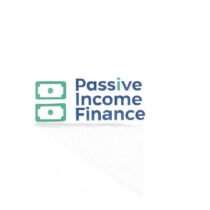Budgeting for Beginners: A Comprehensive Guide to Master Your Finances
Are you ready to take control of your finances? Budgeting is the first step toward achieving financial stability and reaching your goals. Whether you’re looking to save for a vacation, pay off debt, or simply manage your expenses better, this guide is tailored just for you. Let’s dive into the essentials of budgeting for beginners!
Introduction
Budgeting is not just for those in financial distress; it’s a smart practice for anyone looking to get ahead. In this guide, we will cover the importance of budgeting, how to create your first budget, tools to help you, and even how to scale your financial efforts. By the end, you’ll be equipped with actionable strategies to manage your money effectively.
Why It Matters
Understanding the importance of budgeting is crucial for your financial wellness. Here are a few reasons why budgeting matters:
- Financial Awareness: Budgeting helps you become aware of your spending habits.
- Control Over Expenses: You can identify areas where you can cut back.
- Goal Achievement: Helps you allocate funds toward savings goals or investments.
- Debt Management: Aids in planning how to tackle debts systematically.
Step-by-Step Guide
1. Evaluate Your Income
Start by determining your total monthly income. This includes your salary, side hustles, and any other sources of income.
2. Track Your Expenses
For at least a month, track every expense. This will help you understand where your money goes.
3. Categorize Your Spending
Break down your expenses into categories such as:
- Fixed Expenses (rent, utilities)
- Variable Expenses (groceries, entertainment)
- Savings and Debt Payments
4. Set Realistic Goals
Consider both short-term and long-term financial goals when setting your budget.
5. Create Your Budget
Using your data from the previous steps, create a budget that outlines how much you will allocate to each category.
6. Monitor and Adjust
Review your budget regularly and adjust as necessary. Life changes, and so should your budget.
Tools
There are numerous tools available to help you with budgeting.
- Apps: Consider using apps like Mint or YNAB (You Need A Budget) for easy tracking.
- Spreadsheets: Create a budget spreadsheet on Google Sheets for hands-on management.
- Envelopes: The envelope method involves using cash for different categories to limit overspending.
Case Study
Let’s look at a real-world example of budgeting in action. Meet Sarah, a 28-year-old marketing professional. She earns $4,000 a month after taxes. Here’s how Sarah managed her finances:
- Fixed Expenses: $1,200 for rent, $300 for utilities, $400 for groceries.
- Variable Expenses: $200 for dining out, $150 for entertainment.
- Savings: $800 for emergency fund and retirement.
- Debt: $200 monthly payment towards student loans.
After tracking her expenses for three months, Sarah discovered she was overspending on dining out and entertainment. She adjusted her budget, cutting those expenses by 50%. As a result, she was able to save an additional $300 each month, putting her closer to her goal of buying a house in two years.
Scaling Your Hustle
Once you’ve mastered budgeting, it’s time to scale your financial efforts. Here are some actionable steps to consider:
1. Diversify Income Streams
Consider picking up a side hustle to increase your income. Ideas include:
- Freelancing: Utilize platforms like Fiverr to offer your skills.
- Online Selling: Sell unused items on eBay or Poshmark.
- Investing: Start small with platforms that offer fractional shares.
2. Hire Freelancers
If you’re overwhelmed, consider hiring freelancers. For example, you can:
- Hire freelancers via Fiverr at $5/hour to help with graphic design or content creation.
- Outsource tasks that consume time but don’t require your expertise.
3. Automate Your Finances
Use technology to your advantage:
- Automation Tools: Set up automatic transfers to your savings account each payday.
- Free Budgeting Tools: Utilize Google Sheets or apps like Mint to track your expenses effortlessly.
4. Invest in Yourself
Consider personal development courses that could enhance your skills and increase your income potential. Look for free resources or affordable online courses.
5. Network and Collaborate
Join local or online communities related to your field. Networking can lead to new opportunities and collaborations that can enrich your income.
6. Monitor Your Progress
Review your progress regularly to ensure you’re moving toward your financial goals. Adjust your budget and side hustles accordingly.
By following these steps, you can effectively scale your financial efforts and work toward a more prosperous future. Remember, everyone’s journey is different, so find what works best for you!
Consider checking out platforms like Robinhood for investment opportunities and Fiverr for freelance services to help you scale your hustle.
Conclusion
Budgeting for beginners is a vital skill that can lead to financial freedom and success. By mastering the steps outlined in this guide, you can gain control over your finances and work toward achieving your goals. Remember to keep your budget flexible, stay informed about new opportunities, and don’t hesitate to seek help when needed. For more insights on personal finance, check out our articles on Smart Investing Strategies for 2025 and Side Hustles That Pay. Start your journey to financial empowerment today!
Consider boosting your earnings with Robinhood or Fiverr (links to be added manually).
